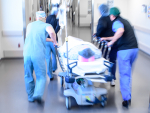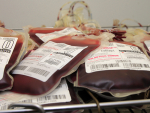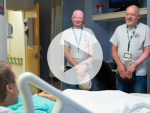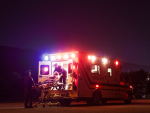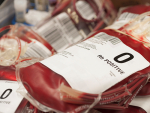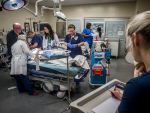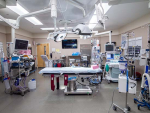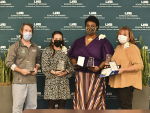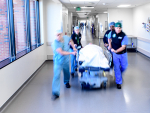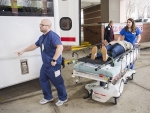Displaying items by tag: division of trauma surgery
Preliminary evidence suggests that teletrauma programs are associated with improvements in the quality of initial trauma care, shorter transfer time to advanced trauma centers for severely injured patients and decreased rates of potentially unnecessary transfers to advanced trauma centers, which leads to substantial cost savings.
UAB trauma experts provide safety advice on space heaters and heated blankets alongside tips for how to dress warmly to prevent illness during the winter months.
Tagged under
In addition to providing excellent trauma care, UAB surgeons continue to establish innovative programs to better improve trauma care in Alabama.
Alarmingly inadequate supply of blood, economic disparity and logistics among many factors playing a role in fueling shortage.
After having a below-the-knee amputation, former SEC football player Ka’Darian Hill is using his story to motivate and inspire others.
Tagged under
Burn survivor who received innovative “spray-on skin” treatment now giving back to UAB burn patients
Tagged under
The world’s first clinical trial of Resuscitative Endovascular Balloon Occlusion of the Aorta found that patients treated with REBOA were more likely to die than those who did not undergo REBOA.
Despite fewer drivers on the roads and fewer injuries per accident, fatal crashes in Alabama increased by 26 percent over the three years from 2020 through 2022.
Tagged under
Trauma patients rushed to a hospital often find that the clothes they were wearing do not survive their medical emergency. A UAB medical student is working to provide discharge with dignity.
Tagged under
Social media has been a useful tool to inform a community about research studies that are exempt from informed consent protocols.
Tagged under
The study seeks to determine whether prothrombin complex concentrate, a blood-clotting agent, could help save the lives of patients at risk for severe bleeding after injury.
Tagged under
The UAB Trauma Center is busier than ever as the number of trauma cases at UAB Hospital has reached record levels.
UAB received statewide nursing awards, including two Nurse Legion of Honor medals, Outstanding Healthcare Organization and State Outstanding Nurse Educator.
Tagged under
Jeffrey Kerby, M.D., Ph.D., was confirmed by the American College of Surgeons as the next chair of the ACS Committee on Trauma.
Tagged under
The number of patients seen at the UAB trauma center continues to rise, requiring increased investment in people and resources to provide treatment.
Tagged under


